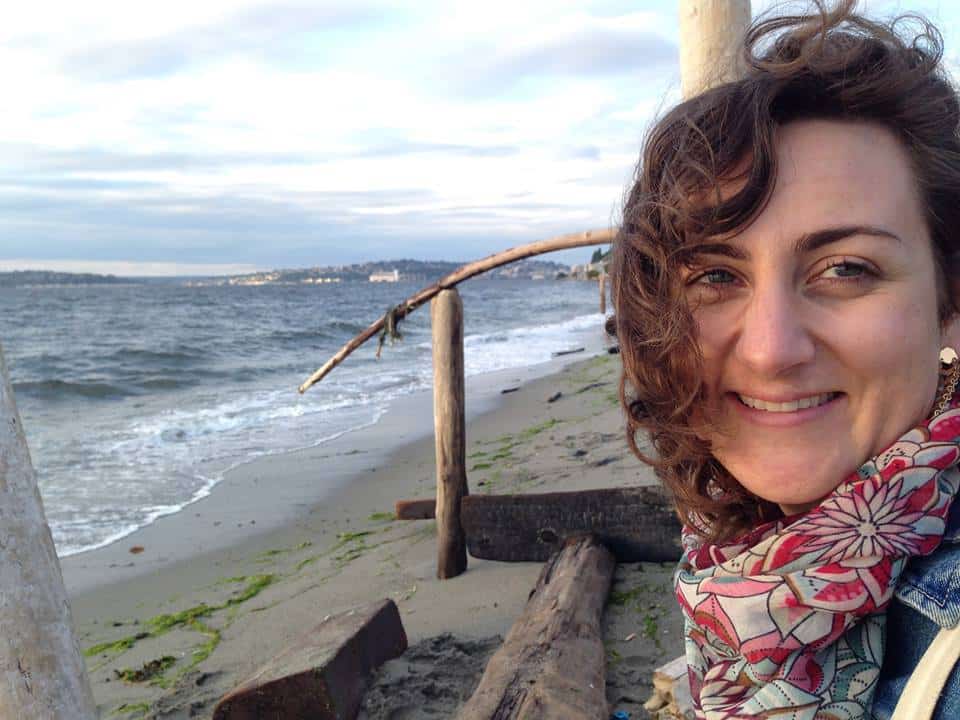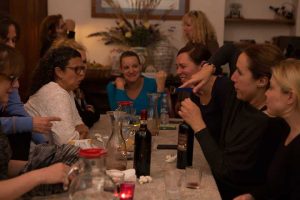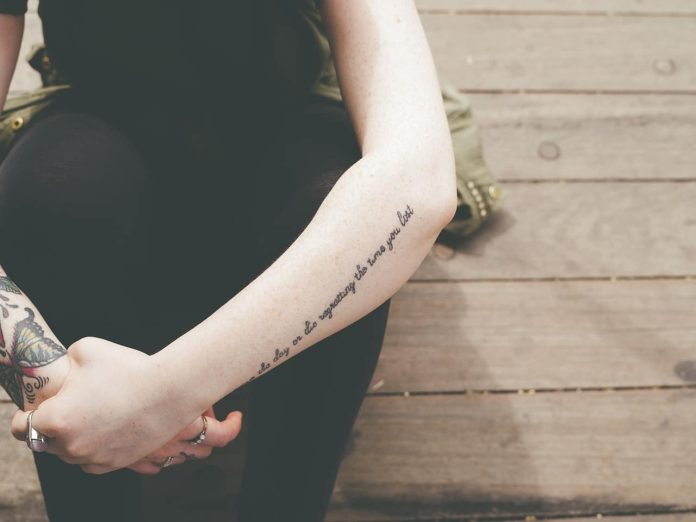By Katie Lee Ellision
When an essay I had written about my father was accepted for publication in 2013, I decided on a rule for letting him know about it. I would send him a finalized copy of the piece before it went live or to print–not so that he could decide whether or not it would be published, but just so that he knew what I had written and where it would be. I thought this was fair to both of us. So when I got the final from the editor, I called my father up, though we hadn’t been speaking much at that point.
I won’t spend time on the details about why my father and I hadn’t been in regular touch—that’s a much bigger story I’m writing. What I do want to talk about–and for a long time I couldn’t talk about anything else–is his reaction and its effect on me and my writing.
When I called to tell him about the publication, he was congratulatory and eager to read it.
“So…” he said, “is this about you and me when you were a kid or…?”
“Just read it, dad,” I said, and he said okay.
We got off the phone, and by the time I sent him the piece that night, it was a little late, so when he didn’t call me back later or even the next morning, I didn’t think too much of it. I figured he was thinking it over. I did leave a message for my mother to offer a copy to her; I knew my father had more than likely mentioned it to her and, judging from the usual barrage of questions during our phone calls about my work and personal life, I knew she would want to read it.
An important side note: I knew parts of this essay would be difficult for my father to read. My thoughts and the reflection in the piece in particular. But those parts were also what I imagined could bring us closer and into honest conversation about the past. Best case scenario, this essay would reveal that ultimately our relationship was a loving and supportive one, no matter what our differences. But I also knew there were other ways he could react.
Twelve hours after I emailed the attachment to my father and about four hours after I left a message for my mother to find out if she also wanted me to send it to her, she called me back. During our six-minute phone call, my mother called me crazy, told me that I was tearing our family apart (I also have a younger sister), and declared that she and my father were “disowning” me.
Clearly, my hopes were a little off. My transformative powers as a writer were perhaps not as potent as I imagined they could be. Or my parent’s love was more conditional than I had been willing to admit. Or all of those things were true.
In the months following that phone call, I turned thirty, completed my master’s degree, and dealt with some serious fallout from a recent breakup with a guy my father had seemed pretty set on my marrying. In that time, my mother sent a couple of brief texts, and I missed my family more than I’d like to admit. I also struggled to it back down and take up the story I began with that fateful essay.
Susan Shapiro shared in an interview with Tin House recently, “The first piece you write that your family hates means that you’ve found your voice.”
The discovery of my own voice shook me. It was powerful, and power, I knew, could be dangerous.
From the Economist when Maya Angelou died last year: “When she was eight, Maya Angelou stopped speaking. That was the year her mother’s boyfriend raped her. But worse than that, worse than the terrible pain in her stomach, worse than the blood or the feeling that her thin hips were coming out of their sockets, was the knowledge that her voice had killed him. After she cried out against him in court, he was found kicked to death. She did not speak again, except to her brother, for five years.”
I can’t compare the damage I may have done to my father’s ego, or even to his heart, to the death of a man by beating. I can say that the ways our voices can hurt others are myriad and unexpected and terrifying. For months, I became obsessed with a fear that my father would die in the midst of our silence and the words in my essay would be the last between us.
Maybe it would be nice if this were an essay about making peace with family as a nonfiction writer, but I’m not a great person to ask about that. It would be even better if I could inspire other women writers to have their say, and publish no matter what, but the reality is that this shit is NOT easy and it’s also not for everybody. What I can say is that, not despite of but because of all the trouble, I wouldn’t do anything differently.
I continue to write for the same reason I wrote the essay about my father: I have stories to tell. And now that my voice is loose, I can’t pack it away again. If I leave these pieces untold, every day that goes by, I know I’ll lose a little faith in who I am. And incredible gifts came out of this familial drama: I found the most unconditionally loving family in my friendships. And while that’s another essay, it’s also the defining reason I continue to look for more of my story and to encourage other women–my students–to tell theirs.
It’s been almost two years since I published that piece about my father. In that time, my parents have reached out to me, and I’ve welcomed their contact. My mother has apologized for her words on the phone that night, and my father called for the first time in over two years just to talk and to tell me that he loves me. I don’t know that they understand that I never meant to hurt them–that I, in fact, have always hoped to heal us. I shed light on a tenderness in our family, and it was too painful for them to see. Our relationships remain tentative. When I trust them, it’s that I trust them to be untrustworthy. This is how I love and forgive them.
Sometimes when I tell this story, the listener’s face becomes pained, like this is some great tragedy. I wrote and published thirteen pages that have permanently changed my relationship with my family. But what they don’t understand is that my relationship with my family has always been tentative; I just stopped pretending it wasn’t.
And now what that essay holds–the darkness and obsessions and fears–are weakened by resting in plain view. Just like Cheryl Strayed says, I wrote like a motherfucker. No longer held inside my body, all that heaviness is now another molecular piece of human history.
Then there’s the irony: The courage and bravery and relentlessness it took to write and publish that essay in the same journal that has published the words of Flannery O’Connor and William Faulkner–those are the same great gifts my parents passed down to me. I inherited their fight and their passion. I’m proud, and I’m also sorry they were hurt instead of ultimately strengthened by it.
I’ve just had three more essays accepted for publication, also about my father.
That rule that led me to send my father the essay in the first place: I nixed it. I continue to write as honestly and accurately as I possibly can, but I won’t necessarily tell the people in it about it. If it could cause undo heartache, or worse, I leave those people be and hope they don’t find it on a bookshelf or a through a Google search.
In my writing group, a woman who’s opinion I greatly admire said after reading a third or fourth piece of mine: “Your work has a consistent structure and tone and subject matter. You’re writing a book.”
Releasing pieces of this voice in me one essay at a time, I’d tend to believe her.
Katie Lee Ellison is an author for a Penguin Books young biography series, a creative writing workshop teacher, a published essayist, a champion equestrian, and a devoted ice cream eater. Raised rough and ready in Los Angeles, polished in New York City, and blossomed in Northern Idaho, she currently finds a slice of home in Seattle, WA.



“When I trust them, it’s that I trust them to be untrustworthy. This is how I love and forgive them.” This is exactly what I’ve had to start doing, and more than being about how I love and forgive my parents, it’s about how I love and forgive myself.
I’d love to read your ‘father’ essays. I’m a first generation Italian Catholic and my father was HUGE in my life …and then my mother died!! I was 15. How can i read your essays?
Agree with Cecilia – would love to read your essay.